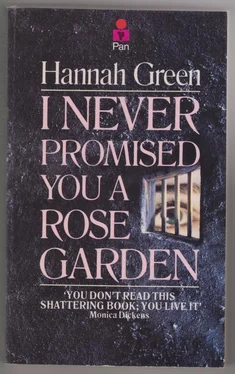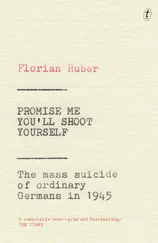The Saturday before, Deborah had gone to sleep looking forward to telling Carla about a new boarder and the landlady’s son-in-law. She had a dream.
In the dream it was winter and night. The sky was thick blue-black and the stars were frozen in it, so that they glimmered. Over the clean white and windswept hills the shadows of snowdrifts drew long. She was walking on the crust of snow, watching the star-glimmer and the snow-glimmer and the cold tear-glimmer in her own eyes. A deep voice said to her, “You know, don’t you, that the stars are sound as well as light?”
She listened and heard a lullaby made by the voices of the stars, sounding so beautiful together that she began to cry with it.
The voice said, “Look out there.”
She looked toward the horizon. “See, it is a sweep, a curve.” Then the voice said, “This night is a curve of darkness and the space beyond it is a curve of human history, with every single life an arch from birth to death. The apex of all of these single curves determines the curve of history and, at last, of man.”
“Can I know about my curve?” she said, begging the voice. “Will I hold part of the sweep of the age?”
“I cannot show you yours,” the voice said, “but I can show you Carla’s. Dig here, deep in the snow. It is buried and frozen—Dig deep.”
Deborah pushed the snow aside with her hands. It was very cold, but she worked with a great intensity as if there were salvation in it. At last her hand struck something and she tore it up from burial. It was a piece of bone, thick and very strong and curved in a long, high, steady curve.
“Is this Carla’s life?” she asked. “Her creativity?”
“It is bone-deep with her, though buried and frozen.” The voice paused a moment and then said, “It’s a fine one—a fine solid one!”
Deborah wanted to plead again for the shape that her art would draw in time, but the dream faded and the voices of the stars became dim and died out entirely at last.
In the morning the vividness was still with her, so that when Carla came and they sat idly and talked, Deborah was distracted and her mind was still hung with heavy stars and her hands were still gripping the smooth curve of bone.
“Please don’t be angry,” she said, and then told Carla the dream. When she got to the part about digging in the snow for the curve, Carla was with her; when she pulled up what was buried, Carla said, “Do you see it? What is it like!” moving a little whenever Deborah moved as if to brush the snow away from it. When she described it to Carla and told what the voice said, Carla began to cry.
“Do you think it’s true—do you really think it’s true?”
“I told you as it happened.”
“You didn’t make it up—I mean you really dreamed it that way—”
“Yes, I did.”
She wiped her eyes. “It was only a dream, your dream….”
“It’s true anyway,” Deborah said.
“The one place I could never go …” Carla said musing, “… the one hunger I could never admit.”
When Deborah finished, Furii said, “You always took your art for granted, didn’t you? I used to read in the ward reports all the time how you managed to do your drawing in spite of every sort of inconvenience and restriction. You were rich in your gift, even at your sickest, and now you see how it can be with others who are not so lucky to have a creative calling into which they can grow and grow. The healthy friendship you had to bury in forgetfulness, and the times of sunlight you banished from your memory. I think this dream was to remind you of another joy as well; it was the understanding of Carla. There may be many who envy you a little—yes, yes, I know it sounds like the old …lucky girl’ business, but it isn’t. You have been taking for granted this rich and prolific gift of yours that so many others would give so much to have themselves. By this dream you were perhaps awakening to it a little. It is part of the call of the world.”
As Deborah listened to Furii’s description of her, it did not sound like a cursed and ruined life. Together they recalled the old Yri cry: Immutably, in sleep, in silence, nganon cries from itself. It had been the secret cry to the damned and had made Deborah an engine and accomplice in their destruction. It would seem now that this horror had been lifted. Was it possible that she could touch things without causing them to become diseased? Was it possible that she could love without poisoning, witness without blighting? Could she give testimony from the elemental bone in a friend’s good need?
Deborah spent the next months simply, working on a series of pen-and-ink drawings and cleaving the past in heavy hours with Dr. Fried. As the world began to gain form, dimension, and color, she started to find the sessions of choir practice and sewing class too fragile a scaffold on which to build hope. No matter how pleasant, sane, or cooperative she was, invisible and inaudible was all she would ever be. She would know the Methodist liturgical year and some of the gossip of the Ladies’ Altar Club, but she would never penetrate an inch under the politely closed faces whose motions she duplicated in those places. Over the text of John Stainer’s “Seven-Fold Amen,” she looked out into the congregation on Sunday and wondered if they ever thanked God for the light in their minds, for friends, for cold and pain responsive to the laws of nature, for enough depth of sight into these laws to have expectations, for friends, for the days and nights that follow one another in stately rhythm, for the sparks that fly upward, for friends…. Did they know how beautiful and enviable their lives were? She realized more and more that her few spare-hour pastimes provided too little in which to test or exercise her fragile “yes” to a newborn reality.
Although she read Latin and some Greek, she had never graduated from high school and her memory of it was now almost four years old—the memories of an occasional visitor from a foreign place. She looked in the town papers and was surprised at her feeble knowledge of the world and its requirements. No job, even the simplest, was open to her. The town was small and slow; a waitress or 5 & 10 girl would not be under the pressure of hurrying crowds; these jobs required little intellect; but she did not have enough education to qualify for them.
For a while there was no help from the hospital. The psychiatrists were all themselves strangers to the town and had been long years away from considerations of skilled and unskilled labor. Dr. Fried implied subtly that it might be Deborah’s problem to solve, and the outpatient administrator, after saying somewhat the same thing, mentioned offhandedly that he would look into the problem. When he called her back to his office two weeks later, he seemed a little surprised.
“I’ve talked to several people,” he said, “and apparently you’ll have to get through high school, before you can get any job.” To her terror-stricken look he said, “Well … think about it for a while. …”
He did not know that Deborah had gone during the day to look at the town high school. It was a great and sudden stand of buildings all the way over on the other side of town. The stone heaps brooded like a great moa, too big to fly. She might have to be one of the students at that school. She had been broken in a school like that, years ago. Certainly the sickness had been building up inside her for years, but the final terrors of it—the missing days, the sudden falls into dark Yr—were all walked through in halls like the ones inside that building, among faces like the ones that would be there. She remembered the struggle before she had given up the pretense of consubstantiality. She thought again of the secret Japanese, bearing untreated the wounds which had led to his capture, secretly dead and bearing unnoticed the pressure-crazing Semblance, secretly a citizen and captive of Anterrabae, the Censor, the Collect, and the Pit.
Читать дальше












